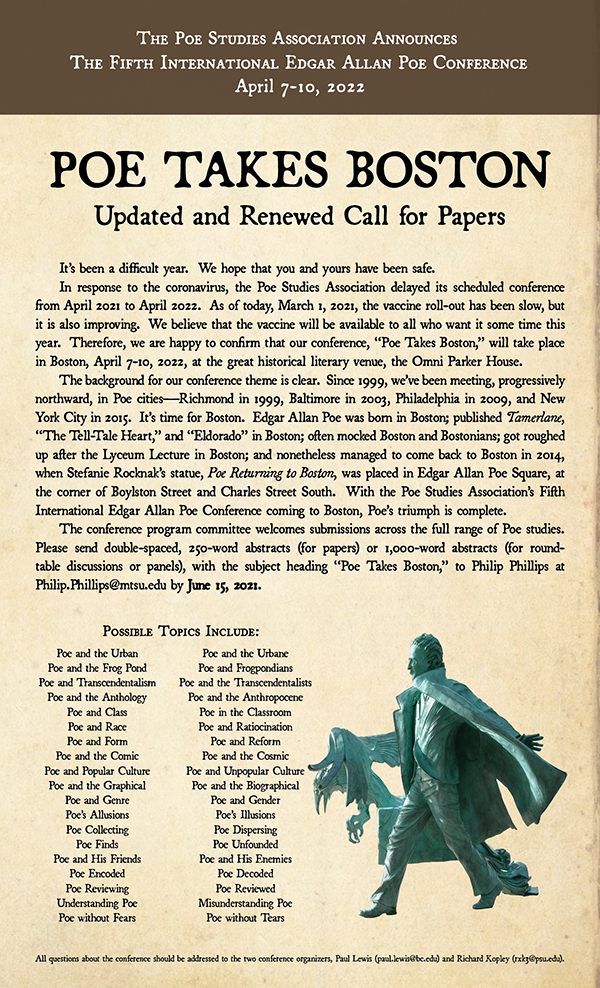A Critical Companion to Wes Craven
deadline for submissions: December 20, 2021
full name / name of organization: Fernando Gabriel Pagnoni Berns
contact email: wescraven1939@yahoo.com
source: https://call-for-papers.sas.upenn.edu/cfp/2021/09/14/a-critical-companion-to-wes-craven
A Critical Companion to Wes Craven
edited by Fernando Gabriel Pagnoni Berns and John Darowski
Part of the Critical Companion to Popular Directors series edited by Adam Barkman and Antonio Sanna
With Scream 5 (Matt Bettinelli-Olpin) ready to open in the first weeks of 2022, the figure of Wes Craven is more relevant than ever. He was the creator of the Scream franchise (five films) which grossed over $608 million in worldwide box-office receipts. Yet, the honor of reviving the agonizing horror genre is what should be emphasized when talking about this particular film. Indeed, the first Scream opened in 1996, with the first half of the decade being witness of the death of the horror genre. Not even the Oscar won by Silence of the Lambs (Jonathan Demme, 1991) was enough to give a new impulse to a genre that was exhausted after the gore excesses of the 1980s. Neither Craven’s beautiful reimagining of the Nightmare on Elm Street franchise, Wes Craven's New Nightmare (1996), was able to get the box office attention it deserved. The global-wide success of the first Scream, however, saved the horror genre from oblivion, producing a healthy annual output of horror films that continues today.
The director’s various works on the horror genre can now being considered American classics, many of them being taught in any course on the history of the genre, while many others deserving a critical reexamination. Craven’s rich career fluctuated between the commercial and the authorial voice. This anthology seeks previously unpublished essays that explore Wes Craven’s entire body of work. We are open to submissions on the Scream franchise, on the Nightmare on Elm Street series and contemporary classics such as The Last House on the Left (1972) and The Hill Have Eyes (1977) but we will particularly welcome interdisciplinary approaches that can illuminate overlooked Craven films such as Deadly Blessing (1981), Swamp Thing (1982), The Serpent and the Rainbow (1988), Shocker (1989), The People Under the Stairs (1991), Vampire in Brooklyn (1995), Cursed (1995), Red Eye (1995) or My Soul to Take (2010), including his non-horror efforts Music of the Heart (1999) and his segment for the anthology film Paris, je t'aime (2006). Close readings on Craven TV’s work are also welcome, including Stranger in Our House (1978), Invitation to Hell (1984), Chiller (1985) and his episodes for the revival of The Twilight Zone (1985-1986) and Nightmare Café (1992).
This volume will be interdisciplinary in scope, including approaches from philosophy, literary studies, film studies, gender studies, history, psychology, hauntology, ecology, etc. The chapters will be peer-reviewed, scholarly, and written at a high academic level.
Contributions could include, but are not limited to, the following topics:
• Thematic and structural analysis of one or more films
• Visual style
• Villains and notions of evil
• Photography and cinematography
• The supernatural
• Craven as an auteur
• Craven and franchises
• Soundscapes and music
• Visions of religions
• TV work
• The American family
• Film as philosophy/philosophy in film
• Failed parenthood
• Film genres besides horror (comedy, drama, mystery)
• Social and cultural contexts
• American youth
• Influences
• Landscapes as sites of horror
• Fairy tale storytelling
• Irony and humour
• Exploration of dreams and the subconscious
• Class, sexuality, gender and queer readings
• Fan fiction made on his work
This anthology will be organized into thematic sections around these topics and others that emerge from submissions. We are open to works that focus on other topics as well. Potential authors are encouraged to contact the editor with any questions, including topics not listed above. Please share this announcement with anyone you believe would be interested in contributing to this volume. Please submit a 300-500 word abstract of your proposed chapter contribution, a brief CV / bio, current position, affiliation, and complete contact information to Fernando Gabriel Pagnoni Berns and John Darowski at
wescraven1939@yahoo.com by 20 December 2021. Full chapters of 6,000-7,000 words are likely due in May 2022 after signing a contract with the publisher (we expect this to be a volume in the ongoing Critical Companion to Popular Directors series edited by Adam Barkman and Antonio Sanna and published with Lexington Books at Roman & Littlefield).
Note: Acceptance of a proposed abstract does not guarantee the acceptance of the full chapter
Fernando Gabriel Pagnoni Berns (PhD in Arts, PhD Candidate in History) works as Professor at the Universidad de Buenos Aires (UBA) - Facultad de Filosofía y Letras (Argentina)-. He has authored a book about Spanish horror TV series Historias para no Dormir (Universidad de Cádiz, 2020) and has edited a book on Frankenstein bicentennial (Universidad de Buenos Aires), one on director James Wan (McFarland, 2021) and one on the Italian giallo film (University of Mississippi Press). Currently editing a book on horror comics for Routledge.
http://artes.filo.uba.ar/pagnoni-berns-gabriel
John Darowski is a PhD candidate in comparative humanities at the University of Louisville. He has authored Adapting Superman: Essays on the Transmedia Man of Steel (McFarland) and is currently editing a book on horror comics for Routledge.
Last updated September 16, 2021
